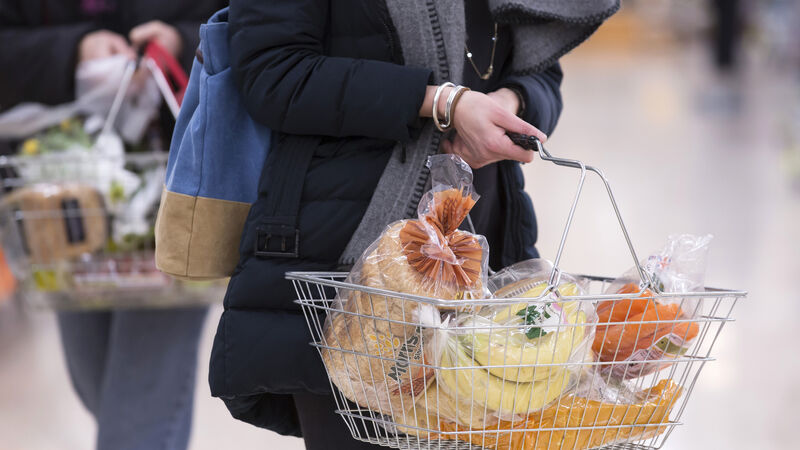Higher food prices to become norm as signals suggest Eurozone inflation is likely to continue

The Eurostat indicator shows inflation has spiked in the last month, rising to 4.1% as of October. PA Images.
The rise in fertiliser costs has jolted European agriculture into a state where production could be constrained for the coming year.
On-farm, either the lack of availability or the sheer cost of inputs will result in limited inputs, and as a result, may impact production. Securing supplies of fertiliser internationally seems to be as much a problem as the actual price. This isn’t an Irish problem but European wide and beyond.
In questioning the EU’s response to rising fertiliser prices, the Polish EU Commissioner Krzysztof Jurgiel highlighted that several simultaneous factors have caused this situation:
1. The EU ban on the import and transit of potash from Belarus, which is the world’s largest producer of this agricultural nutrient;
2. The Commission’s decision to impose anti-dumping duties on fertilisers from the USA, Russia, and Trinidad and Tobago;
3. And record-high gas prices (a staggering annual increase of 595%) have accounted for 60-80% of the industry’s operating costs.
Some relief had occurred from the dizzying gas prices seen in October as the second major pipeline of gas from Russia, Nord Stream 2, was expected to be fast-tracked, together with statements from Russian President Vladimir Putin suggesting that European gas stocks would be rebuilt.
The geopolitics of the situation is as serious as a heart attack. You wouldn’t need to be much of a conspiracy theorist to put the fact that gas has only been dribbling in from Russia pending the approval and certification of the Nord Stream 2 pipeline to allow a direct supply of gas from Russia to the heart of Europe via the undersea pipeline being constructed in the Baltic Sea.
Putting pressure on gas prices by reducing supplies could, as the theory suggests, hurry up Europe’s interest in getting the new pipeline up and running.
Looking a layer deeper from an economic point of view, short-term pain for Russia in holding back supplies would be useful if, in the longer-term, multiple supply streams to Europe opened up allowing for a greater sales of gas into Europe.
Looking deeper still, Nord Stream 2 is seen as a critical piece of infrastructure from the Russian side, as current gas supplies must go through the Ukraine and Belarus giving these countries a layer of protection from both Europe and Russia. With Nord Stream 2 up and running, these middle countries lose a degree their political power.
Us farmers are just pawns in the game between Europe and Russia. Still, in reality, the increased cost of gas and derivates therefrom including electricity and fertiliser, has already translated into rising inflation at producer-level and is flooding rather than trickling down to consumers.
The Eurostat indicator shows how inflation has spiked in the last month, rising in the Eurozone to 4.1% on an annual basis as of October. In the 30 years from 1991 to 2021, EU inflation rates have been relatively stable, topping out in that time at a high of 5% in 1991, with a more recent spike of 4.5% in 2008.
The current trajectory of inflation rates suggest that those records could easily be surpassed given that the curve is rising rapidly rather than plateauing over recent months.
Shortage of materials as a result of Covid disruption, supply chain issues, rising global energy prices and high gas prices are conspiring to cause supply-side inflation pressures.
Meanwhile, as consumers exit national lockdowns, a combination of consumer exuberance and pent-up demand are compounding demand-side inflationary pressures. For us farmers, there is some comfort in understanding the external factors which are and will affect farming in this period of turbulence.
Knowing that these externalities are outside of our control leads to greater acceptance and takes away some of the frustration. Of course, we would like to have access to cheap inputs and maximise profits in an era of high output prices, but in this state of flux it's better to focus on getting through the storm. As a nation of mainly livestock farmers, the ability to convert cheaply produced grass for the coming season will insulate us from the worst of the woes.
Absent of any sadism, a period of food price inflation may actually bring back focus to one of the founding principles of the European Economic Community as it was in a post-war era - the importance of food security. Equally, a re-finding of the importance of food production at an EU level might temper expectations for the role of farmers as climate change demands come to the fore.


